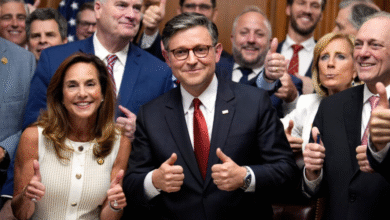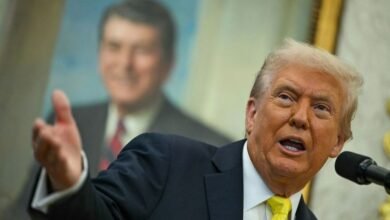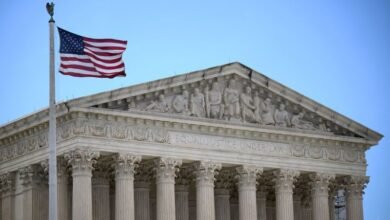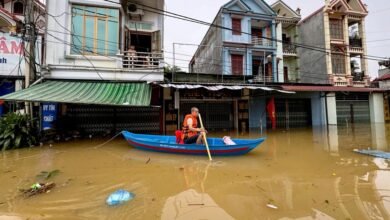Kosovo dispatch: US halts Strategic Dialogue, citing instability and marking political setback – JURIST
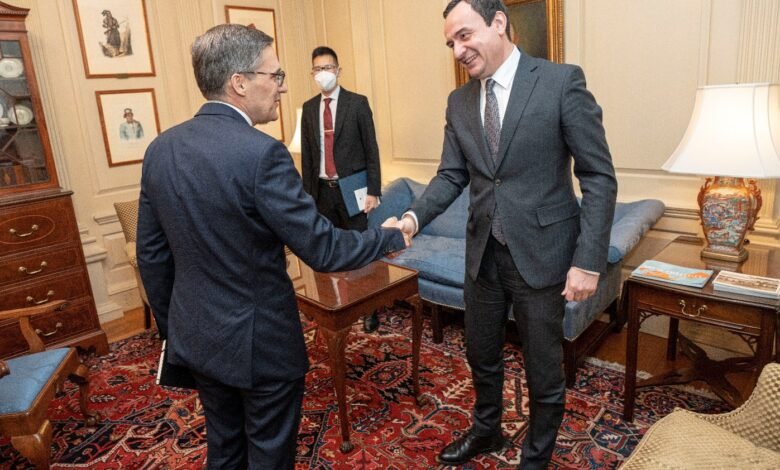
The United States government announced on September 12 that it will suspend the long-anticipated Strategic Dialogue with Kosovo, citing Prime Minister Albin Kurti’s actions as a source of escalating tensions and instability. In a statement posted on X, the US Embassy in Pristina said the decision reflected Washington’s concern that Kurti’s policies were undermining stability in northern Kosovo and making it difficult to work productively on shared priorities. The embassy wrote:
We remain committed to advancing joint interests shared by the United States and the people of Kosovo. Our relationship with Kosovo is based on a common goal: strengthening peace and stability as a basis for mutual economic prosperity. Unfortunately, recent actions and statements by Caretaker Prime Minister Kurti have posed challenges to progress made over many years.
For Kosovo, the Strategic Dialogue was not a symbolic gesture. It represented an opportunity to join the ranks of countries such as the United Kingdom, France, Italy, and even North Macedonia—states with which the US has built formalized channels for advancing bilateral cooperation on defense, security, energy, and economic development. Had it materialized, the dialogue would have marked a milestone in consolidating Kosovo’s international partnerships and strengthening its case for deeper Euro-Atlantic integration.
Reactions within Kosovo reflected the seriousness of the decision and the gravity of the suspension becomes even clearer when viewed against precedent. As legal expert Eugen Cakolli noted, the US has suspended this mechanism only with four states in nearly two decades: Russia, China, Georgia—and now Kosovo. To be mentioned in that company is not only alarming: It signals the “harshest diplomatic message” that the US could send about Kosovo’s “international credibility” without moving into open confrontation.
President Vjosa Osmani expressed “deep regret and concern,” underscoring that the US-Kosovo alliance is a strategic matter requiring unity and commitment across the political spectrum. The government itself tried to downplay the move, insisting it would welcome constructive criticism and seek to adjust its actions.
Others, however, have been less forgiving. Constitutional law professor Mazllum Baraliu called the suspension “worrying and disturbing,” urging state leaders to treat it with utmost seriousness and to repair the situation quickly. Former ambassador Lulzim Peci described it as a predictable consequence of Vetëvendosje’s irresponsible policies, with Kurti bearing direct responsibility. Analysts such as Shkëlzen Gashi even suggested that the embassy’s announcement resembled the opening of Kosovo’s election campaign. Meanwhile, opposition parties PDK, LDK, and AAK immediately held meetings with US representatives, emphasizing the deepening rift between government and opposition in handling relations with Washington.
This moment should not be underestimated. Kosovo’s security, international legitimacy, and aspirations for integration rest heavily on its relationship with the United States. When that relationship falters, it is not just the government that pays the price—it is the people of Kosovo who risk losing ground in a fragile geopolitical environment. And here is the diplomatic truth that should resonate in Prishtina: When Washington pauses, Kosovo cannot afford to stand still. The credibility of a young state depends not on grandstanding, but on listening carefully to its closest ally and acting swiftly to restore trust.
Opinions expressed in JURIST Dispatches are solely those of our correspondents in the field and do not necessarily reflect the views of JURIST’s editors, staff, donors or the University of Pittsburgh.


